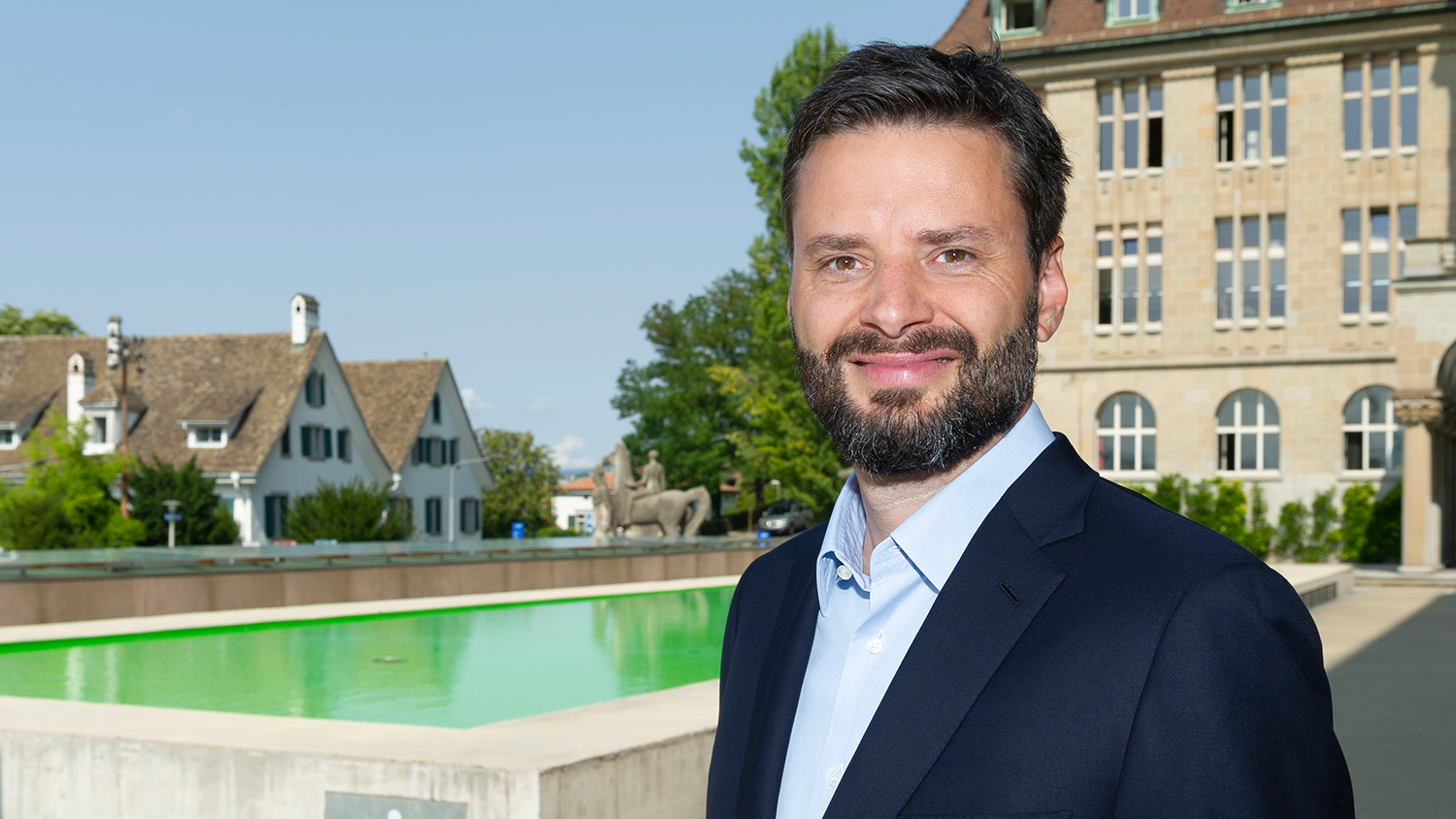Navigation auf uzh.ch
Navigation auf uzh.ch

Ralph Ossa, you are professor of international trade, chairman of the Department of Economics at the University of Zurich, and now Chief Economist of the World Trade Organization. What, in your view, are the greatest current challenges for world trade?
Ralph Ossa: They are best expressed as three questions: one, how can global trade help to reduce geopolitical tensions? Two, how can global trade assist in combating climate change? Three, how can global trade contribute to reducing poverty? I’m convinced that global trade is an important part of the solution in all these areas.
In recent years, the US and China in particular have engaged in a trade war with high protective tariffs to protect their domestic markets. What are the consequences of this conflict?
The immediate consequences of the trade war are primarily higher prices and lower real incomes in the US and China. A wider consequence is that general trust in a stable world trade order has decreased. Trade policy has become more unpredictable, and that is bad for the global economy.
Your research shows that it doesn’t pay to break off or severely limit trade relationships. Why is that?
The connection between trade and prosperity is actually very simple. Trade creates employment, and employment creates prosperity. This holds true for local, regional and also international trade.
What effect have Covid and the war in Ukraine had on global trade?
These crises have thrown into sharp relief the extent to which countries are dependent on one another, whether for supplies of ventilators, vaccines, gas or wheat. But that doesn’t mean we should start trying to produce everything domestically. The key to resilience is not isolation, but international diversification.
What major challenges is the WTO currently facing?
To prove its relevance and regain the lost confidence in its ability to act, the WTO must demonstrate that it can effectively advance trade cooperation and successfully resolve trade disputes. For me, this year’s 12th Ministerial Conference was a turning point in this respect. The conference achieved the seemingly impossible, which in turn opens up many more possibilities.
What is the role of the WTO today in terms of promoting global trade and resolving trade disputes?
The WTO continues to form the bedrock of our rules-based trading system. Its 164 members determine the rules for global trade policy and thus also for the promotion of world trade and the arbitration of trade conflicts.
What influence does it have?
The WTO, together with its predecessor GATT, has had a decisive influence on the development of world trade since World War II. A milestone in recent history was China’s accession to the WTO in 2001, which contributed significantly to the country’s economic miracle. While this had certain repercussions in industrialized countries, its main effect was to lift hundreds of millions of people out of poverty.
There are plans to reform the WTO – what direction should such reforms take?
The basic aim is to modernize the WTO rules and regulations. The last major reform process of the global trade system came to an end in 1995 with the establishment of the WTO, so change is long overdue. There are many topics on the agenda, such as trade in services, trade in digital goods, or managing subsidies, among others.
You have just been appointed Chief Economist of the WTO. Will you be able to influence the fate of the organization?
As Chief Economist, I will be a kind of guiding intellectual force within the organization, and I hope to thereby have some degree of influence. I will also head up the economic research and statistics department, which means I’ll also be able to change some internal processes.
What is your motivation for taking on the role?
Personally, I would like to use my strengths to benefit others. With the position of Chief Economist, I’ll be perfectly placed to do this, because I can use all of my professional experience for a purpose that is important to me. If the world can use anything right now, it’s more international cooperation.
Will you continue to be associated with UZH?
Yes, I’ll continue to research and teach at UZH, albeit with a greatly reduced workload. At the WTO, I’ll be bridging trade policy research and practice, so there will be many links between my research at UZH and my WTO responsibilities.